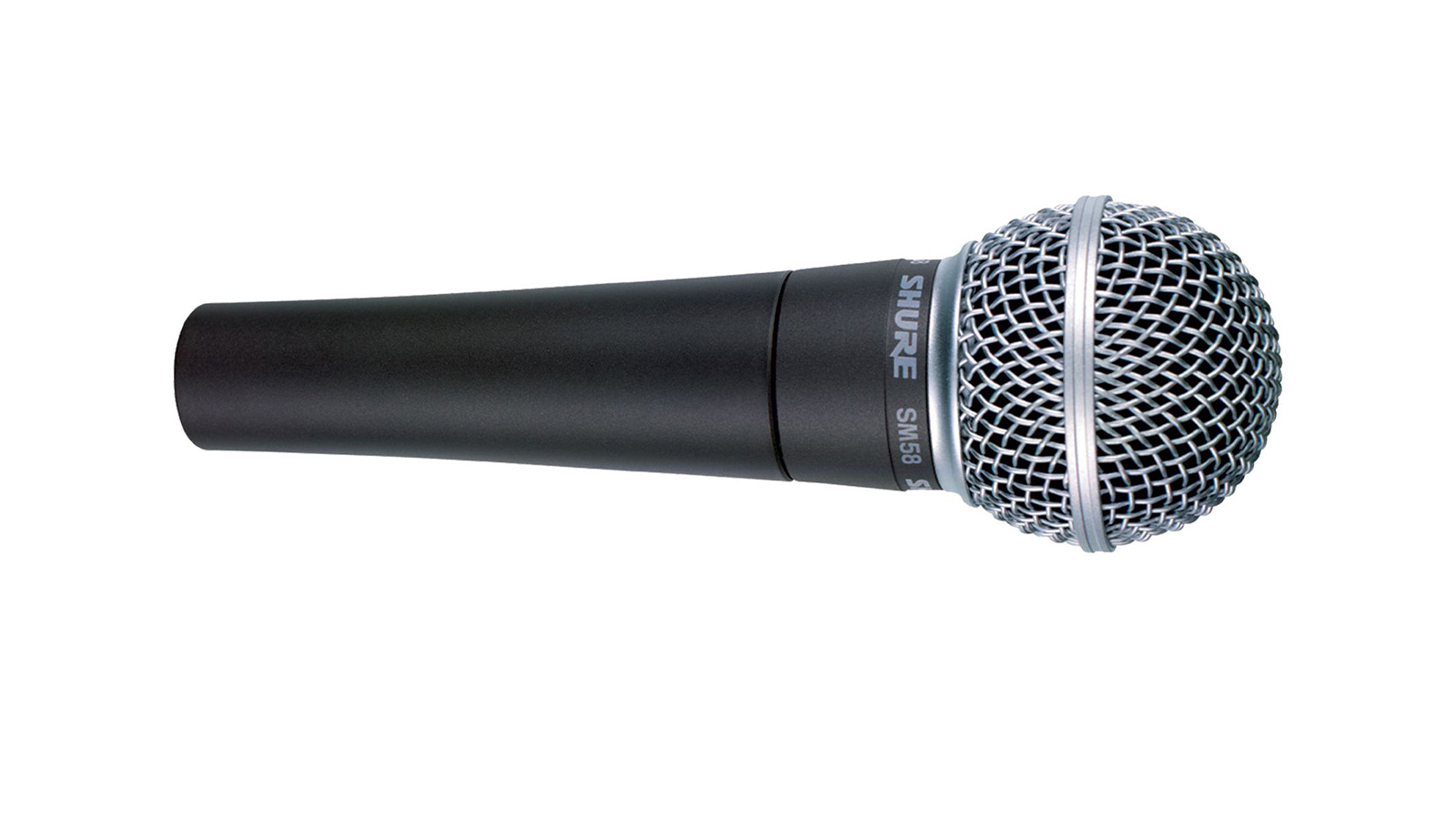MusicRadar Verdict
Even after six decades, the Shure SM58 is still the first name on the team sheet for many vocalists and performers. And with good reason; it’s built like a warship, sounds great and can be trusted to deliver show after show.
Pros
- +
Cheap, considering what it is
- +
Plug and play
- +
Simply will not break
- +
Tight pickup pattern
- +
Reliable, consistent sound
Cons
- -
There are better options for instrument recording
MusicRadar's got your back
What is it?
In the world of vocal microphones, few have enjoyed a career like the Shure SM58. Even fewer have earned a reputation for reliability and consistency like it. Put simply, for vocal applications – be that speech, singing, beatboxing or anything involving air being expelled from a mouth – the Shure SM58 has had the market cornered since 1966. Some of music’s biggest names, from Paul McCartney to Henry Rollins, swear by the venerable old mic, and its status as a staple of the touring band’s rig is undeniable. But what is it that makes the SM58 quite so popular?
Essentially, the Shure SM58 is a simple dynamic microphone, which shares a lot of its characteristics with its younger sibling, the Shure SM57. But where the ’57 excels in recording instruments thanks to its flatter grille and smaller footprint, the SM58 is a pure vocal mic. From the ball-shaped grille which provides a bit of distance between the sound source and the capsule, to the ergonomic design geared towards hand-held performance, this is a microphone designed to take your voice and make it sing. Or talk, you decide. It even boasts an internal pop filter to lessen the negative effects of plosives and pops, and is tough enough to survive being thrown around in hot, sweaty clubs every night without dying.
The best thing, however, about the Shure SM58 is that you can get yourself one of these legendary, ultra-capable mics for under £/$100. Really, every studio should have one.
- Save cash with the best cheap microphones
- More of the best live vocal mics
Performance and verdict
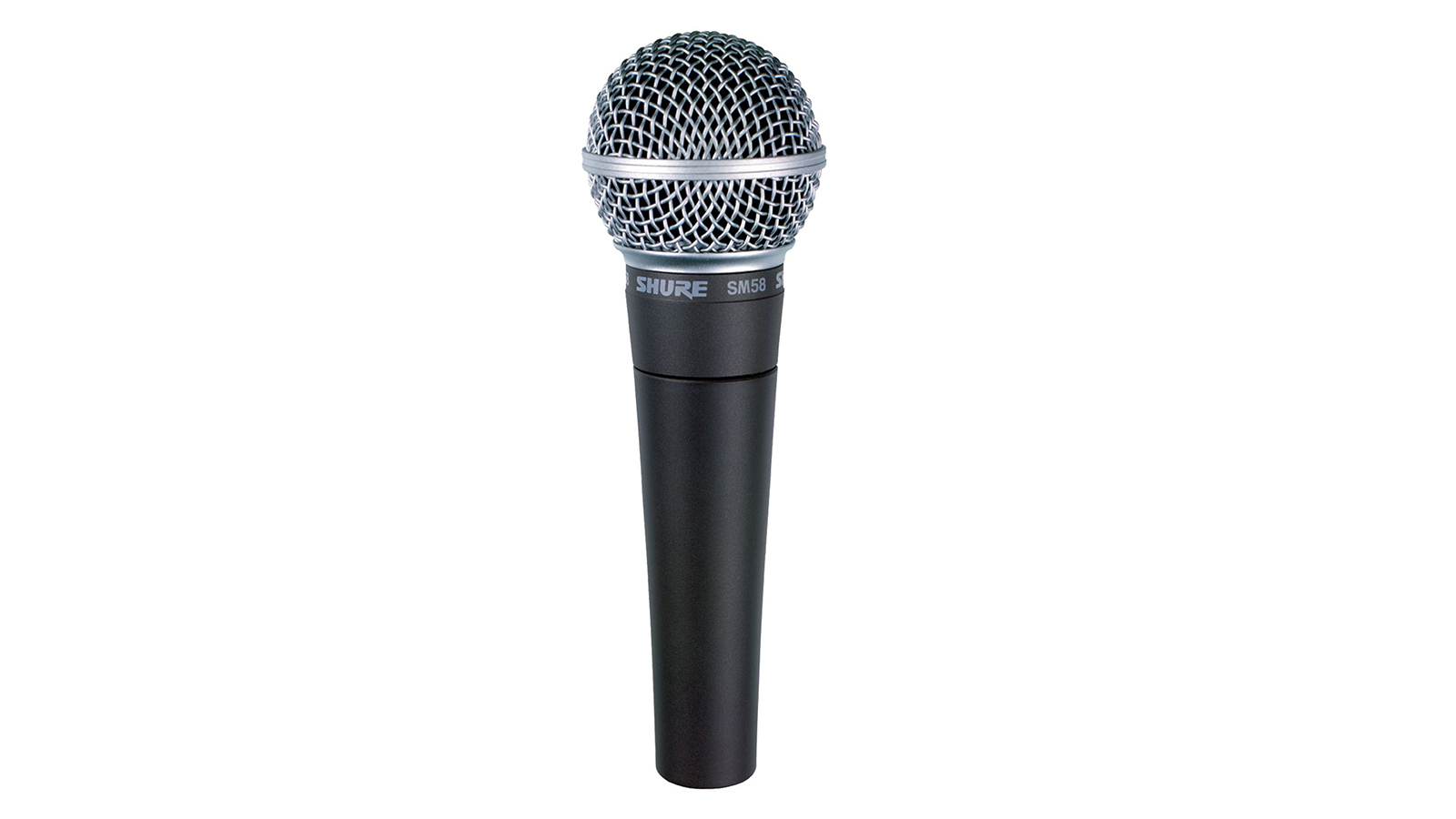
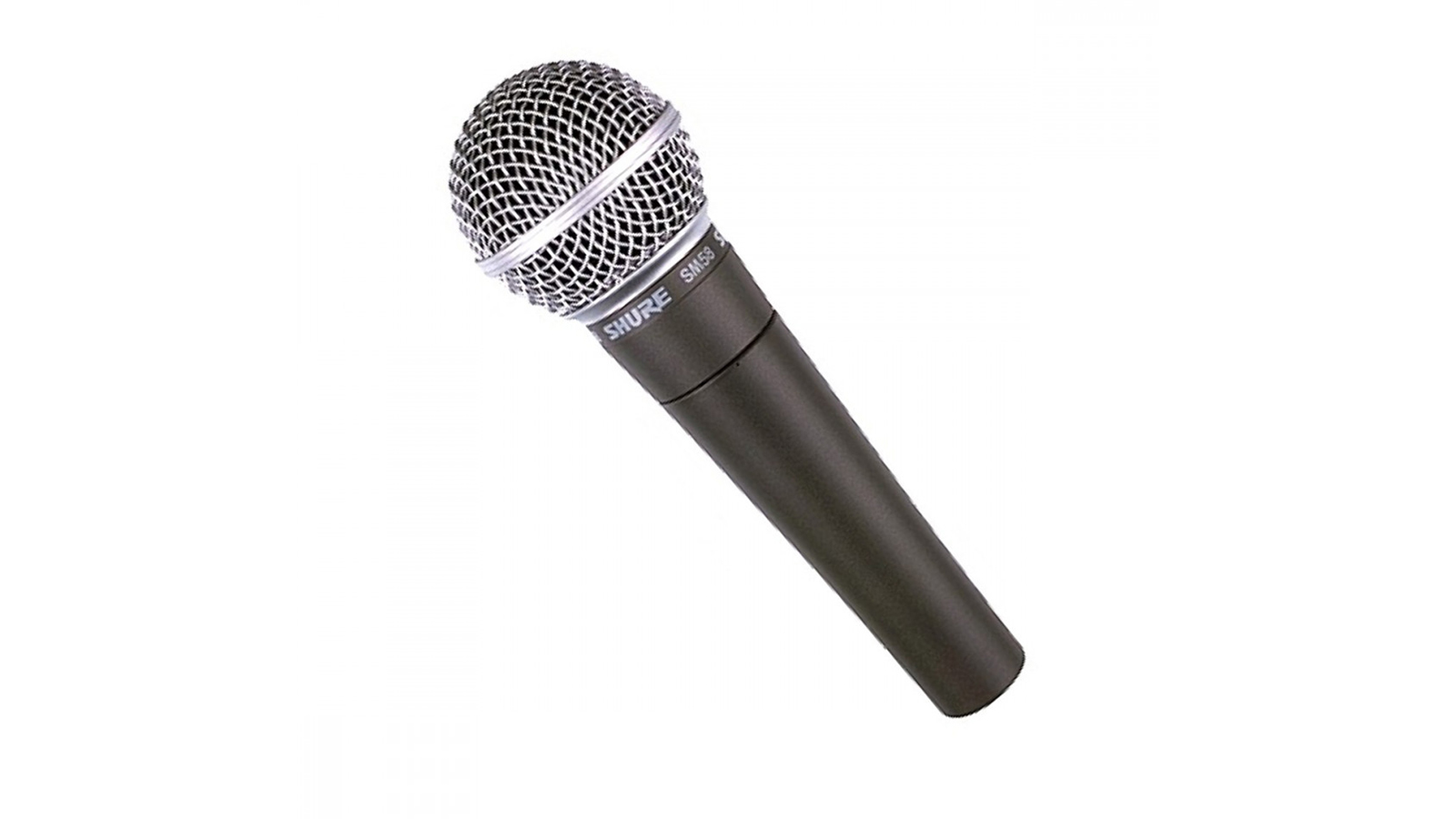
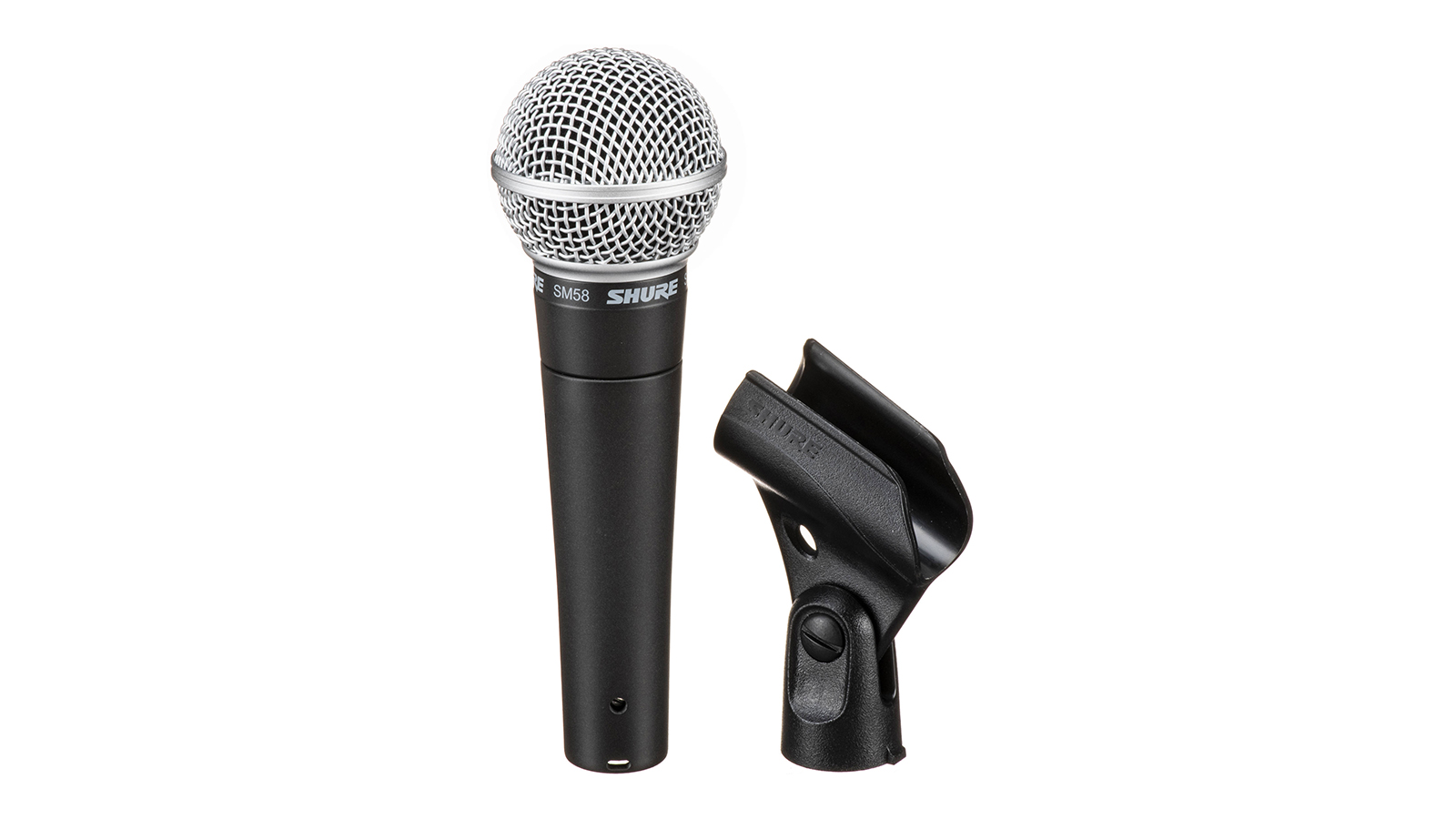
When you open up the box of a new Shure SM58, you’d be forgiven for feeling a bit underwhelmed. We’ve spent the first part of this article, as thousands have before us, going large on why it’s a genuine legend in the music business. Yet to look at, you’d be forgiven for thinking it just looks a bit… ordinary. Bear with us. It has a nice weight, sure, and has a solid die-cast steel body so you instantly feel confident it could survive a kaiju attack, but it doesn’t exactly scream out ‘music royalty’.
Fear not, however, because the real magic comes when you use the SM58, which you will, over and over and over again. Its reputation, and its place at the top table has been earned over time. Look at any review online, or speak to any seasoned user, and you’ll find the same words cropping up. Robust. Reliable. Trustworthy. A big slice of the SM58’s charm lies in the fact it isn’t a purchase you’re going to have to make every few years. You buy one, and it’s yours for the foreseeable.
Look at any review online, or speak to any seasoned user, and you’ll find the same words cropping up. Robust. Reliable. Trustworthy.
Of course, a mic being rough and tough isn’t why you’re buying it. Or, at least, it isn’t your primary purchasing motivation. It needs to sound good and thankfully it does. It sounds great, in fact, with a clean and balanced sound across the frequency spectrum.
It doesn’t have the same noticeable presence boost of the SM57, but does deliver accurate results every time. As a vocal mic, it has certain neat physical characteristics designed to cater for these applications specifically, certainly when compared to the SM57. Both feature the same capsule and method of operation, including the tight cardioid polar pattern which does a superb job of rejecting noise from the sides, but with the ’58 you’re getting a mic with a few tweaks made to its overall form and functionality to suit vocals.
Want all the hottest music and gear news, reviews, deals, features and more, direct to your inbox? Sign up here.
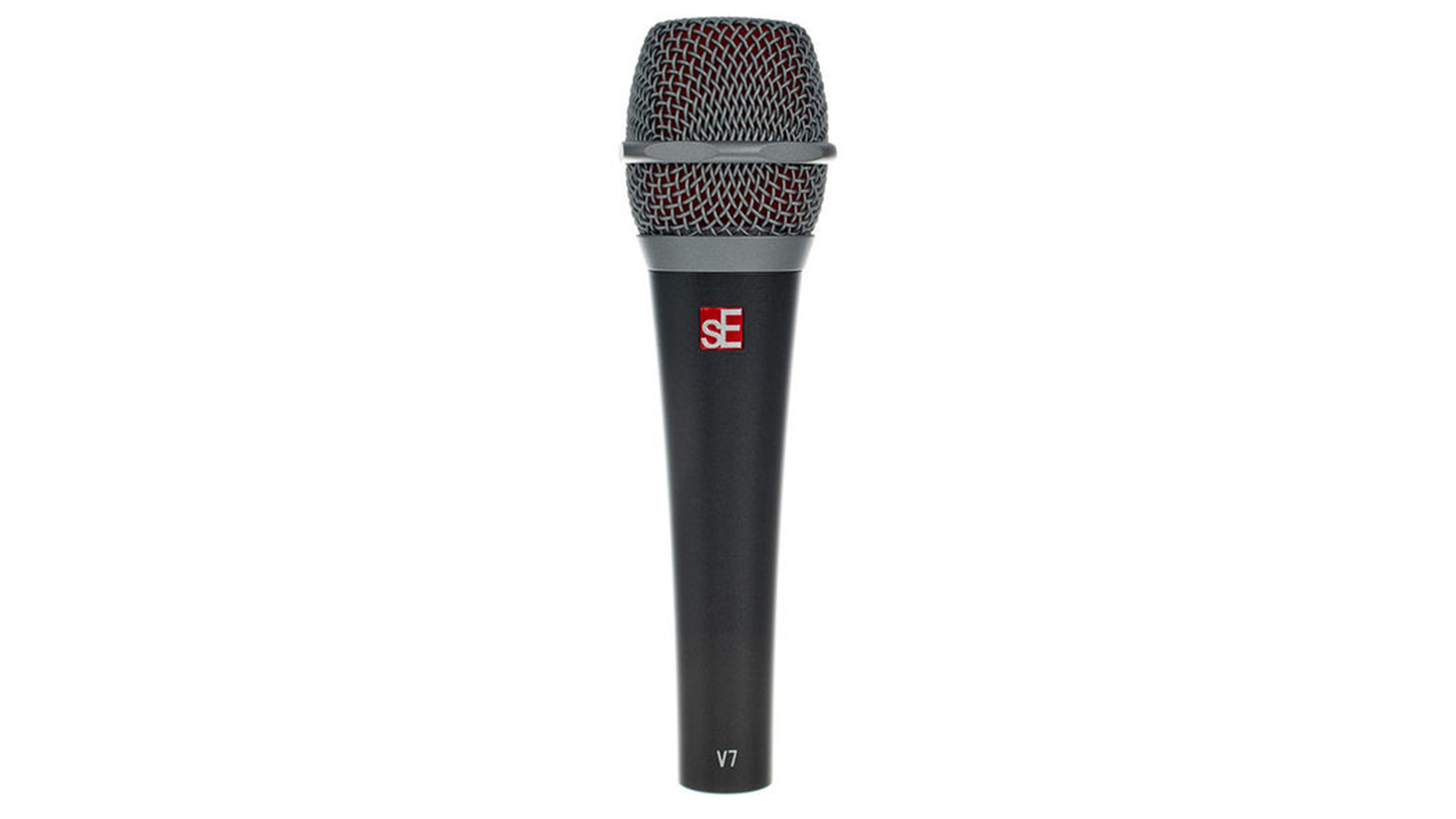
Electro-Voice ND96
sE Electronics V7
Sennheiser e825
The grille, for example, purposefully puts a bit of distance between you and the capsule which, in conjunction with the pop filter, reduces the unwanted impact of pops and sharp increases in levels. And while it does come with a mic-stand attachment, the SM58 is very music designed as a hand-held mic thanks to its comfy housing and internal shock mount which counteracts noise created from movement by your hand.
One of the many reasons the Shure microphones SM58 is so popular is that if, by some strange set of circumstances, you do manage to break it then it can largely be replaced bit by bit. The grille is the most obvious replacement but the fact is you’re more likely to switch out an SM58 grille due to it looking a bit grotty after years of breathing and sweating into it than you are because it somehow broke. A world-class, indestructible vocal mic that still tops the sales charts after nearly 60 years? That would be the Shure SM58.
Hands-on demos
Podcastage
CHICVOYAGE
Musician’s Friend
Specifications
- Type: Dynamic
- Frequency response: 50Hz to 15,000 Hz
- Polar pattern: Cardioid
- Sensitivity: 94dB SPL
- Connection: 3-pin XLR
- Weight: 299g
- Contact: Shure
Chris Corfield is a journalist with over 12 years of experience writing for some of the music world's biggest brands including Orange Amplification, MusicRadar, Guitar World, Total Guitar and Dawsons Music. Chris loves getting nerdy about everything from guitar and bass gear, to synths, microphones, DJ gear and music production hardware.
